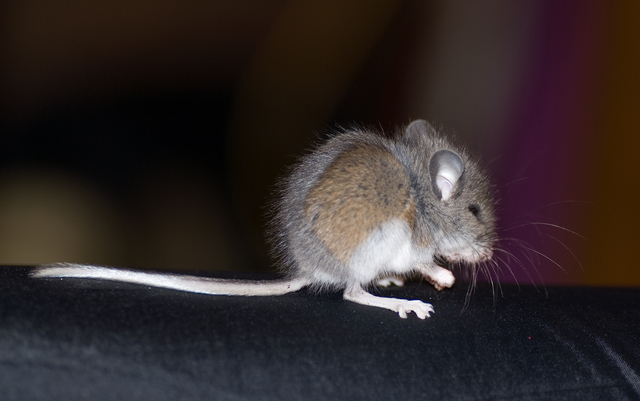Many people assume that if they have a pet dog, they have no need for mice control in Ajax. The truth is a little more complicated. Mice are prey animals and don’t necessarily like to hang around where predators such as dogs and cats are present. Nevertheless, they are also highly adaptable and when motivated by the promise of food, they can figure out ways to evade their predators. Working to their advantage is the fact that they are nocturnal while dogs and cats tend to adopt the sleeping patterns of their owners. Here is some useful information about dogs and mice and the nuances of the predator-prey relationship between them.
Do Dogs Frighten or Attract Mice?
In 2017, University of Florida researchers published the results of a study that they had conducted to determine whether the presence of dogs would have a repellent effect on mice. The study took place in several villages in Africa, and the results showed that the presence of household pets, such as cats and dogs, resulted in decreased mouse activity. However, the study suggested that cats and dogs together were more effective at repelling mice than dogs alone. When only dogs were present, the mice were more likely to return. Based on these results, it is unclear whether mice are more afraid of cats than dogs or don’t feel that they can evade two predators at once. It is also uncertain how applicable the results of a study conducted in rural African villages would be to urban settings.
You may have heard stories about people experiencing increased mouse activity after adopting a dog. Anecdotes such as these cause some people to wonder whether dogs attract mice. Mice probably don’t have friendly feelings toward the dogs themselves. It is more likely that they are attracted by the dog’s food and are willing to brave an encounter with a potential predator to steal it away. You can reduce the chance that dog food will attract mice to your home by storing it in sealed containers and cleaning up any uneaten portions.
How Do Dogs Feel About Mice?
Depending on the breed, some dogs may be highly motivated to hunt mice, while others may be largely ambivalent to the rodents’ presence. Some dogs, especially terriers, are bred specifically for rodent control, and these are more likely to chase mice. Other breeds may show curiosity about the mice without taking any steps to deter them. Some dog breeds may completely ignore the presence of mice.
Some dog owners report that, when they had a problem with mice in the house, their pets actually became afraid of them. This may seem counterintuitive when a dog is so much larger than a mouse and well equipped to defend itself. Nevertheless, it is common for dogs to develop fears of other animals, and just as humans can be prone to irrational anxiety, dogs can too. While it is not entirely clear why a dog might be afraid of a mouse, one theory is that your pet can pick up on your emotions. If you are anxious or stressed about mice in the house, your dog may exhibit similar symptoms.
Conversely, there are also people who keep both dogs and mice as pets and find that they get along. This may be because the dog and the mouse were introduced to one another when young and taught to disregard their natural instincts as predator and prey, respectively.
Reliable Mice Control in Ajax
Having a dog in the house may be an effective mouse deterrent. However, because of the many factors involved, it is not reliable. Adding a dog to the home is unlikely to curb an existing mouse problem. Skedaddle Humane Wildlife Control removes the mice and relocates them outside, decontaminates the areas where they have been, and prevents them from coming back. Learn more about the services we offer in your community.



